This moment in history is critical for the future of the Church. God’s people must change. God’s Church must change. If we fail to change, we will continue to fail.
And we are failing, my brothers and sisters, no matter how much I wish that weren’t the case.
We are failing to meet the needs of our world. We are failing to fulfill the Great Commission of our Lord. We are failing to fully embrace and embody the gospel as it has been proclaimed to us since the time of Christ.
Yet our response to such failures has not been to embrace the changes required in order to meaningfully and successfully meet the challenge of our times, but to dig in our heels and proudly shout that any such change means capitulating to the whims of the world.
Nothing could be farther from the truth.
To be a faithful Christian entails becoming all things to all men (1 Cor.9.19-23), preaching to all Creation (Mk. 16.15), and introducing others to the unknown God (Acts 17.22-31). Since we’re not especially effective now, faithfulness thus entails radical change on our part.
Christian innovation and design is not only our God-given mandate but our present prophetic call to once again become missionary people.
I am writing this article specifically to help answer the big questions concerning Christian innovation and design, namely:
* Is creativity a distraction from our faith, or a manifestation of faithfulness to God?
* Can we prove, from scripture, to other Christians that we need to be creative?
* Ought we worry about our fascination with creativity; meaning, does our preference for creative expression endanger the tradition we have received from those faithful Christians who have come before us? Or does our creative expression constitute “picking up the baton” and carrying on their legacy?
In this article, we’ll be primarily concerned with proving—from scripture—that creativity is essential to Christian witness, that creativity is a manifestation of faithfulness and the responsibility of the believer in turbulent times like ours, and that if we’re serious about being Christlike then we cannot fail to be creative in all our endeavors.
What follows is a brief overview of Christian innovation and design as elucidated by the scripture and sound biblical theology. The format largely entails answering commonly posed questions about this topic and those closely related to it, in an effort to provide succinct answers to complex questions. More robust teaching on these issues can be found in “Then, Now, Next: a biblical vision of the Church, the Kingdom, and the Future” and “Heirs of Eden: designing the world we want with God’s help and for God’s glory”.
PART ONE: What does the Bible say about creativity and innovation?
Let’s begin with the broadest possible strokes, and then delve more deeply into the topics of innovation and creativity respectively. First, what does the Bible say about creativity and innovation? The scriptures are replete with both the need for creativity and the jubilant endorsement of creativity wherever it appears. Consider how often we’re admonished to “sing unto the Lord a new song” (Ps.96), or how intensely the temple and the priestly garments are described as “beautiful” and “glorious” (Isa.64; Ez.40-48), or how David’s song upon the harp soothed the evil spirits plaguing Saul (1 Sam.16.14-23). Each of these examples—and many, many more besides—demonstrate that God uses creativity to address the problems of both the human heart and the failures of human systems in order to bring about a more pleasing world.
To discern a full picture of creativity and innovation in the Bible, we need to broaden our search terms and look beyond just scripture verses and into the narratives and discourses. Nowhere does the Bible say, “Thou shalt be an innovator”, but creativity and innovation absolutely litter the biblical corpus if we have ’eyes to see.’
Biblical imagery, stories and metaphors help us understand complex topics. Creativity is a good example, and though many might be drawn to a more flowery image, I think the best biblical imagery to shape our understanding of creativity is dung.
Consider that dung is what’s leftover after the body uses everything it can. It is messy, fetid, and undesirable. And yet, certain parts of sacrificial animals were not burned on the altar, but placed outside the camp as a sin offering. The flesh, skin, and dung of an animal were among those discards, meant to signify purification (See Ex 29.14; Lev 4.11). Dung is good fuel. Flowers grow in dung. The prophets made exceptional use of dung. Ezekiel, for example, was commanded to cook with dung (Ezekiel 4.12-14) as a sign that God considered Israel’s worship unworthy. There were occasions where dung was used as currency (see 2 Kings 6.25), must like art is traded today. Dung can be valuable, and in our culture, creativity most certainly is.
Our creative efforts, too, are dung. They are what we do with what we’ve been given after we’ve digested, processed, and absorbed all the good we can for our souls.
All our creativity is derivative. Technically, we are sub-creators with God rather than co-creators, since only God can create something out of nothing. We are always creating new things out of already-existing materials after we have absorbed them, digested them, worked them over, and then spun them out. It is, of course, crass to refer to the noble work of creating with God as “dung”, but as a creative I find it a useful reminder not to become too enamored with my own cleverness.
So…what does the Bible say about creativity and innovation? To answer this question, it is tempting to provide the top 7 Bible verses about creativity—and we will!—but a better answer goes a little deeper than just the surface.
The Hebrew people had no technical language for art. Something was beautiful if it was truly itself. Original. Faithful. Honest. Accurate. Beauty was never spoken of as being something isolated or morally neutral. Neither was beauty seen as particularly strange or out of the ordinary.
Quite the contrary, the beauty of someone or something largely resided in how ‘true’ it was; for example, whenever there was a flower that looked just as a flower should, it was considered beautiful; whenever there was a building or tool that worked and stood just as it ought, it was considered beautiful. There was never any differentiation between the character of a thing and the thing itself – things that were beautiful were things that reflected the ordered meaning of God’s good creation.
The fullest expression of beauty in the scriptures was the Temple in Jerusalem, which was seen as the place where God’s glory congealed. The Temple’s construction was the first time where someone was given special gifts by God to do something ‘artistic’, namely Bezalel and Oholiab being gifted (as a craftsman and a designer, respectively). The language used to describe their work was the language of wisdom, knowledge, and skill – the kind of language biblical writers used to talk about living well before God.
This tells us there is holiness in art. There is holiness in creativity. There is holiness in innovation.
So, what does the Bible say about creativity and innovation?
Do it!
And do it all for the glory of God.
If you want to go deeper into this topic and search for examples of creativity and innovation in the mission of Jesus as recorded in the gospels of the New Testament, you don’t have to look too hard. Consider that Jesus’ creativity is revealed in his insatiable curiosity—he’s always asking questions—and even his sagacity, as he skillfully evades rhetorical traps by asking deeper questions that expose his adversaries’ ugly motives. Jesus’ creativity is also revealed in his predilection for variety—he never performs a miracle the same way twice!—and, though it may seem strange to consider miracles “innovations”, the truth is that Jesus approaches the supernatural with more heterogeneity than either his historical counterparts or any would-be miracle workers today. Jesus was unpredictable, eschewing all formulae, like a chef making each meal from scratch ingredients to plate the perfect supper every time.
Jesus was also intellectually creative. Much of his teaching is rightly considered simply the best of historical Judaism (’love your neighbor as yourself’, for example, comes from Leviticus 9.18). Yet he blended his tradition with the contemporary dialogue of his faith (many scholars, for example, see strong parallels between Jesus and the school of Hillel in the Temple), as well as the broader philosophical teachings of Plato (consider that Blind Bartimeus may very well be a continuation of Plato’s dialogue, Timeus, since Bar-Timeus is literally ‘the son of Timeus’). Jesus’ intellectual rigor was by no means compromised by his playfulness. He loved ideas and he enjoyed teasing those ideas out in the marketplace, leading people to God.
Of course the best-known example of Jesus’ creativity was his use of parables, finely crafted moralistic tales he oft repeated (hence the slight variations in differing accounts of the same parable, presented to diverse audiences). It’s best to consider the parables a form of flash fiction, since then you get a sense of how tightly composed and skillfully poignant each parable truly was. Feel free to compare the Prodigal Son to any great short story in American literature and be amazed by Jesus’ brevity, depth, and pathos. No other author comes close! And, if you really want to be amazed by Jesus’ creativity, compare any parable to any modern “sermon illustration” and you’ll begin to see how masterfully Jesus took universal themes and intensified their significance for his hearers.
All of this begs the question: What divine identity and purpose did God give humanity? In the simplest terms, it’s fair to say ’we were made by God to be like God—to be godly.’ That’s the truest understanding of the imago dei, a doctrine referring to humans being created in the image of God. However, in Hebrew, image (tselem) can also be translated as shadow. We’re meant to shadow God—to stay in step with God, to imitate and emulate and embody all that God does, albeit with less dimensionality (we’ll only ever be like God, not as God ourselves).
Some mistakenly believe that any conversation about being human somehow means “absent God’s involvement.” Quite the contrary. Humans are imbued with a divine spark, a holy seed, an image in the bottom tank of our souls. Can you be human without God? Not wholly. Not quite. We are God’s shadows, and we’re just working to stay in frame.
PART TWO: Christian Innovation?
Let us now turn our attention to the first of two major topics in this paper: innovation.
What is best definition of innovation? Innovation means putting creativity to work. The aesthetic application of creativity results in art. The practical application of creativity results in innovation. Of course, the two can overlap (as they did in the Second Temple), but the distinction is a helpful one since many modern hearers despair that they are not creative because they are not artistic. Yet creativity manifests in architecture, mathematics, economics, and theology as readily as painting, pottery, and music.
What is the biblical perspective on innovation? Innovation, like technology, is neither inherently good or bad. Since innovation means putting creativity to work, the moral merit of each innovation is entirely dependent upon the work to which it is applied. The Tower of Babel was an architectural innovation that led people away from God, whereas the building of the Second Temple was an architectural innovation that led people toward God. The Golden Calf was a religious artifact that deceived, whereas the Ark of the Covenant was a religious artifact that inspired. The offering of Strange Fire offended God (cf. Leviticus 10), whereas the offering of Abel’s pure sheep pleased God (cf. Genesis 4.3-5). Each of these created works—architecture, art, sacrifice—could rightly be considered “innovative”, but the ultimately morality of each is determined by the people involved. Innovation itself is amoral. We are the ones who determine the morality of each manifestation of creativity and design.
What is the biblical perspective on innovation? If you really want to know God’s perspective, you need look no further than the beginning of the Bible, in Eden.
Eden was God’s template for Creation. In Eden, we had creative work to do, cooperating with God to perpetuate God’s design. God intended to work with us forever. That’s why Heaven, similarly, is presented as a place where God and God’s people continue their cooperative work for eternity.
Eden is the world as God first created it. Eden is when God showed us Creation and said, “Like this!” Eden was God’s paradigmatic happiness. It was all opportunity, all adventure and exploration, creation and co-creation. Like a parent creating a toy room for their children, God placed us in Eden and stood at the threshold watching us play.
Can you imagine God’s delight when Adam and Eve would taste a new fruit? Find a new species of plant? Encounter a new animal?
And there would be danger in the garden, though who knows how specifically or precisely they experienced it. But danger nonetheless. That Adam and Eve were mean to subdue the earth entailed something which they had to overcome. Hostile wilderness? Untamed animals? Who knows…but there was something over which they had to exercise dominion.
And how did they pass their time? I have ideas, some from the biblical witness and some from our understanding of ancient Mesopotamian gardens. Eden, for example, would have had architecture, which means Adam and Eve would have constructed buildings—pergolas, trellises, arbors; great, multi-tiered canals; even follies—tall stone towers with no purpose save perspective.
Think of it this way: Adam and Eve didn’t need money, food, or shelter. What occupies us when our basic needs are met and our base desires satiated?
Creativity.
When we have nothing else to do, we do what we want. That’s the beginning of a biblical perspective on creativity and innovation: it was our first mandate, and remains the bedrock of our relationship with God.
What does the Bible say about innovation? There are 280 uses of the word “new” in the Bible, which is perhaps the best place to start when considering what innovations are recorded within scripture. Among those things that once were not and now are, are things like cooked food (wine, cake, bread), music (instruments, composition), transport (roads, vehicles), housewares (clothing, tents, homes, cookware), culture (codified religion, writing, poetry, art), etc. Simply put, as an historical record, the Bible details countless innovations over the centuries of its composition. Arguably, the Bible itself is a tremendous innovation, as it brings together dozens of writers in a handful of languages over a thousand years, articulating at least 15 different genres of literature so that the people of God might better understand who God is and how God relates to us all.
And yet, if we’re pressed to find one great Bible verse about innovation, then we certainly must not skip Romans 4.17, which describes God as “the God who gives life to the dead and calls those things that are not as though they are.” After all, isn’t resurrection an innovation? Isn’t creation itself an innovation? Won’t the New Jerusalem be an innovation?
Innovation means putting creativity to work. God, our Creator, works in mysterious ways to undo death, to manifest ex nihilo, and to make all things new.
What does the Bible say about innovative thinking? In the Bible, we see examples of innovation in Paul’s use of Phoebe as the messenger who delivered the letter to the Romans and was tasked with explaining Paul’s intended meaning (a role almost unheard of for women in the ancient world), or of mixed class and mixed race gathering together to celebrate the Lord’s Supper (again, something almost completely unthinkable in the ancient world, particularly among religious elites), or even of John the Revelator’s participation in the genre of apocalyptic literature (a genre that only existed for approximately 200 years, making John both an innovator and a wisened sage among the writers of his day). These are just a few of the examples in which the Bible consistently demonstrates that innovation can easily be considered worship, faithfulness, and godliness among Christians.
What does the Bible say about new ideas? First and foremost, let’s caution ourselves against “looking for verses” that provide definitive answers to overly simplistic questions. This is a great case study, by the way, since there are plenty of new ideas in scripture that are not commented upon. Jesus’ teaching contained all manner of new ideas, and nowhere does God condemn Jesus’ innovations on holiness, lawfulness, relationships with women or sinners or Gentiles, nor his observance (or lack thereof) of certain religious norms. Yet there are several verses which seem to condemn new ideas precisely for their newness. Paul warns Timothy about new and strange ideas, and Paul also assures the Corinthians that his authority doesn’t rest upon wise and persuasive words. Consequently, if we’re looking for “verses” about new ideas, we’re likely to be skittish about rhetoric, philosophy, and innovations in theology.
Yet we need not fear!
Paul’s ideas themselves sounded new to new audiences—particularly upon the Areopagus—and the Jerusalem Council existed for the very purpose of cultivating new ideas to deal with situations that had never previously been resolved. So it’s fair to say the Bible is very much in favor of new ideas…when they’re good.
And how can we know if they’re good or not?
Ultimately, you can tell a tree by its fruit (cf. Matthew 7.16). Do these ideas produce love, joy, peace, etc.? Or do these ideas lead people astray? That, ultimately, is of far greater concern to believers that newness or staleness.
What is innovation in Christianity? As we discussed earlier, innovation entails putting creativity to work. Christian innovation employs creative solutions to challenges in liturgy, mission, formation, community, government, education, finance, etc. Christian innovation is the Spirit-sponsored application of our imagination to solving real-world challenges that impede human flourishing, both within the Church and beyond, into the world.
What does the Bible say about innovative thinking? In the Bible, we see examples of innovation in David’s use of the sling versus Goliath (as opposed to the sword and armor, the typical weapons used in single combat), in Solomon’s judgment with the two mothers (where his unexpected decree to “cut the baby in half” was a dramatic reversal of legal norms), or even Paul when he sent a prayer cloth in his stead trusting that God’s Spirit was not bound by time and space but could be mediated through faith and intention.
One of the best examples of innovation in the Bible occurs when God rewrites the Law on human hearts instead of stone tablets. Again and again, the prophets remind us that the ultimate truth is that which is embedded upon our hearts, on tablets of flesh, instead of the rote and rigid rule-following controlled by the stone tablets of the ten commandments. We often dismiss this when considering “innovation”, yet what better example could there be? Long before Marshal McLuhan uttered his famous adage that ‘the medium is the message’ Yahweh understood precisely how true that was and put divine creativity to work by instilling the most important truths within us—where they could not be ignored—instead of before us, where they could be set aside.
Who are the most innovative leaders in the Bible? As discussed above, clearly Jesus was the innovative leader par excellence. But one oft-overlooked innovator was Cain, whose many missteps teach us as much as his cunning.
Cain made his home in Nod, the land of wandering. There, he did two things: first, he took a wife, thereby creating a family; second, he founded the first human City, which he named after his son, Enoch.
Cain thought he could reclaim Eden by doing what his father did, by fulfilling at least part of God’s mandate from the Garden—multiply! Cain thought he could reclaim his divine calling by founding a city, but the security of that city was no substitute for the peace of the presence of God. And even though Cain was obedient in one sense, he still maintained his separation from God. That separation meant the city of Cain was in jeopardy from the very beginning.
Immediately after the city was born we read about the development of the arts in the musicianship of Jubal, the tool-making of Tubal-Cain, and the creation of culture through architecture, agriculture, and technology.
But in all these things Cain tried to develop God’s things without God. He absconded God’s gameplan for new people in no-place, achieving a counterfeit blessing.
We have tremendous power to create—culture, civilization, art, architecture…everything! But because our creative capacity is so remarkable, we often forget that our creativity is ultimately derivative. It comes from God. Our Creator created us to create. We were made. We were designed. And we were made by God to become like God. Consequently, when we disconnect our creativity from our Creator—when we attempt to employ God’s gameplan without God—we find ourselves uprooted and adrift.
We create and build and manifest and achieve… and wonder why all the “things” don’t provide what they promise. Why doesn’t wealth satisfy? Why doesn’t achievement enduringly delight? Why doesn’t the accumulation of pleasure intensify?
Could it be that we have sacrificed God’s Presence in pursuit of pleasure? These things—creativity, abundance, talent—are not evil in themselves (quite the contrary! We were made to experience these, and so much more!), but absent God, these are like baubles with no Christmas Tree, like rocks instead of stars, like coal that knows it was meant to be diamond.
That was Cain’s real curse: he could only enjoy what he created while cut-off from his Creator.
We have to learn from his mistakes. God has placed within us the power to re-make the world, but if we maintain our independence from God, then all our enjoyments and satisfactions will ultimately be aborted. God gave us a Garden, and requires from us, a City—but not just any city! God requires that we work together in the unfolding future of the New Jerusalem, that we constrain our creative pursuits to stay in step with the Spirit. Otherwise, our efforts will not produce Heaven-on-Earth, but a counterfeit city like that of Cain.
Cain provides a cautionary tale, but if you really want to make the case that innovation is godly, then the best place to begin would be with God and innovation. After all, if God is innovative, then innovation cannot possibly be inherently ungodly. And, of course, God is the ultimate innovator, since the very act of Creation entails God putting divine creativity to work, solving the problem of how men might live and how God and men might live together, working in cooperation and perpetuating divine creativity.
We see this innovative mind at work in the greatest sermon on innovation, the Sermon on the Mount. Consider Jesus’ constant reframing (“you’ve heard it said, but I say to you…”) and his insistence upon speaking in koans (“the last shall be first, and the first shall be last”, “the one who wants to keep his life must lose it”, “unless a kernel of wheat falls to the ground and dies, it remains only a single seed, but in dying it produces much life”). Jesus was a master innovator, not only in his rhetoric but equally in his profession as a craftsman (Greek: tekton, from which we get our English word “technology”). Jesus created tangible goods to assist and to help the members of his community, a mantle we can easily assume through shrewd use of media and technology today. By virtue of who he was and what he said, Jesus Christ provides the ultimate manifesto for innovation, creativity, and change.
Now, as stated previously, innovation entails the application of creativity to practical solutions. One of the most common is the need for change, so we might rightly wonder if there are any examples of change management in the Bible. Well, of course there are! One of the most significant examples of change management occurs when Moses complains to God (ironically because of the peoples’ complaints against Moses), and God instructs Moses to appoint 70 judges who will oversee the smaller disputes among the people. Thus some of the Spirit that was on Moses came to rest upon the 70, and the workload upon Moses was somewhat lessened.
Was this done well?
That’s a great question, since immediately following this episode (in the book of Numbers) both Miriam and Aaron begin to criticize Moses. It is possible, though not certain, that one of the catalyst for this newfound discontent owed to the fact that Miriam and Aaron were now somewhat displaced. Where previously they’d been seen close to Moses, almost as equals, now the 70 judges looked to Moses alone for guidance and Miriam and Aaron’s leadership was compromised. Moses could have, perhaps, done things differently to avoid such malcontent; although, in the end, God supported Moses’ leadership and Miriam and Aaron were made to fall in line.
PART THREE: Creativity and the Bible?
Let’s now turn our attention to the other major topic addressed in this paper: creativity.
What is the biblical view of creativity? Here’s a brief summary: We are creators created by the Creator to perpetuate Creation.
We were made by God to be like God (Gen.1.26-27). We’re God’s emissaries (2 Cor.5.20), people made in the divine image, God’s shadows. As Athanasius of Alexandra famously stated, “God was made man that we might be made God.” As God’s co-creators, we are meant to expand the borders of Eden, to fill the Earth and to subdue it (Gen.1.28) until the glory of God covers the Earth (Hab.2.14). That includes cultivating God’s government (Gen.1.28), God’s creativity (Gen.2.20), and God’s peace, which will require us to not only draw together the resources of Creation (Gen4.22) but to generate wise order and release human potential (Ex.31.1-11).
Why is creativity important to God? Because God is first revealed to us as Creator, and we are never more like God than when we, in emulation of our Creator, create. God made us to be like God—to be godly—and godliness is, first, creative.
When we create, we are like God. Regardless of the fact that our creations are always derivative or subpar or of lesser significance, we are never more like God than when we are making things and making things up.
Take, for example, the trash-to-treasure movement. In France, they call it Bricolage. Now, we run HGTV shows about repurposing old antiques. Or steampunk. These design threads all celebrate the same basic motif: take something of no value, add imagination, and imbue that which was worthless with new worth. Voila. A $2 chandelier from the thrift store is now a $500 object d’art.
Isn’t that what God does with us? We had no people, we had no name, but we became the people of God. We were adopted. Inherited. Gifted. Named. Anointed. And now we’re valuable.
What God does for us, God also does with us. He makes us new. He empowers us to make new things.
What else does this new-making energy require than imagination?
“Fantasy is a natural human activity. It certainly does not destroy or even insult Reason; and it does not either blunt the appetite for, nor obscure the perception of, scientific verity. On the contrary, the keener and clearer is the reason the better fantasy will make it.”
– JRR Tolkien, on Fairy Stories, 65
To imagine is to see something that only exists in your mind, and the ultimate manifestation of that image is to create it in the material world. To bring it forth. To create it.
Our creative work is beautiful, and beauty is a signpost to God. Because all beauty comes from God, reflects God, and reveals God we can have conversations about God every time we see something truly wonderful. Even more significantly, independent of any conversations about beauty, God can use beauty itself to reveal Himself directly to people.
Because beauty is almost the only way God can penetrate the armor of our indifference. We grow deaf so quickly to teaching and sermonizing and authority; blind to example and skill in living; sometimes the only thing God has to work with in our stubbornness is the beauty around us. If God can get us simply to recognize something beautiful, then God has a portal through which to speak.
So…why is creativity important to God? Because God is less interested in doing things for us than doing things with us. God wants humanity as partners in the ongoing work of Creation, not simply beneficiaries of God’s creativity. That’s why we’re told to ’fill the earth and subdue it’ (Gen.1.28). That’s why we’re told to ’go forth and multiply’ (Gen.1.28).
This world is God’s gift to us, and what we do with it is our gift back to God.
God made everything we need to make everything we need. God gave us the raw materials we need to develop the world into a perfect habitat for a growing humanity. God supplied enough food, water, soil, and clean air to sustain a population far greater than what we currently entertain. God gifted humanity with intelligence, reason, and curiosity enough to figure out how to move forward from Eden into eternity.
We need to build, to enhance, to elaborate, to develop, and to cultivate. Somebody has to bring a bottle of wine to dinner if we’re going to toast one another’s successes, celebrate each other’s company, and linger long after the table has been cleared. After all, you can’t have the Eucharist with a fistful of grapes, so even for us to celebrate the Lord’s Supper we cannot simply remember what Christ has done until we do our part of setting the table and making the meal.
Remember, it’s not simply that God wants us to be creative. Our creativity is a reflection of our Creator, who is Creativity manifest—nay, the very source of creativity eternal.
Among the most creative ideas from God has to the Incarnation. Certainly there are other religions who boast a myth about god-becoming-human, but only in the Christian story does God become a penniless peasant born under a cloud of shame who labors in obscurity and dies like a criminal. Our God emptied himself of his divine privileges, Paul says in the kenosis, taking on the form of a slave (see Phil.2). The King of Kings was no prince, scholar, or statesman. He was a wandering preacher with nothing to commend him other than the devotion of his followers and the compassion he inspired among his adherents. In this way, the more Christlike we become, the more adverse we are to the trappings of power and privilege, which is precisely what God has been warning us against from the beginning. Our fundamental hope is in loving and serving each other, rather than in enslaving and controlling one another, and God demonstrates this hope by becoming one who serves even to the point of death and in so doing empties death of all its power.
This creative power has taken root in men and women all through history; though, it’s fair to say we’re typically more familiar with the male-centric stories than their female counterparts. So, in the spirit of fairness, let’s address who might have been the most creative woman in the bible?
That’s difficult to say, since so many of the women in the Bible were resourceful, clever, and intelligent. Esther, for example, is offered “half the kingdom”, but refuses it in lieu of protection for her and her people. This counter-offer grants her what surely no other offer would have (protection against the king’s favored advisor). Likewise, Naomi advised Ruth to be coy, to put herself in a position where Boaz would not only want her but feel indebted to her and thus become both of their savior. Or, consider Deborah, who maneuvers herself into the limelight upon Barak’s shyness and earns glory for Israel. These woman—as well as Jael, Phillipa, Lydia, Priscilla, Rahab and many others— demonstrate their willingness to use their minds to navigate complex circumstances and orchestrate unforeseen ends. They were creative and they used their creativity not only to help themselves but to benefit the People of God.
CONCLUSION: Christian Innovation and Design
Clearly, we’ve covered a wide range of topics in this introductory paper. The most important things for you to remember are these: first, God has called you to create in emulation of your Creator; second, if you’re not sure where to begin, we can help.

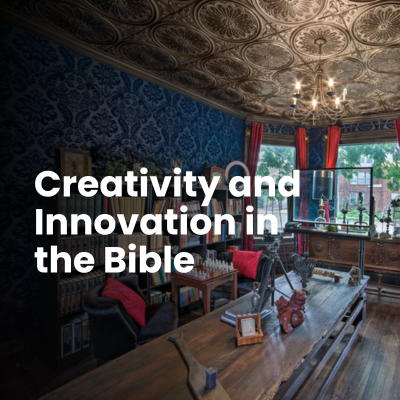
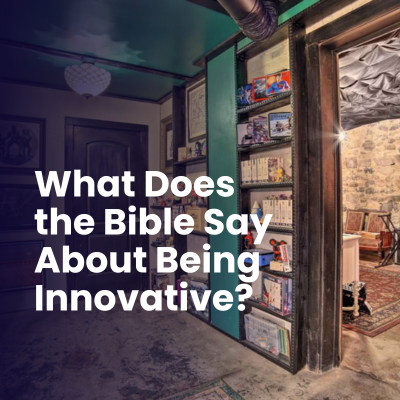
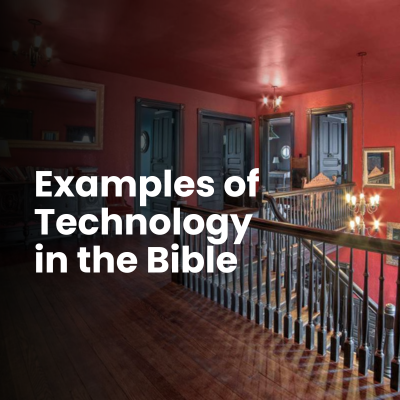
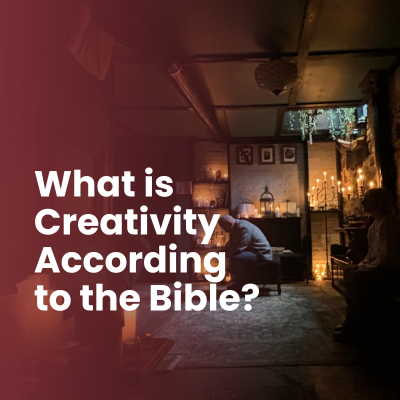

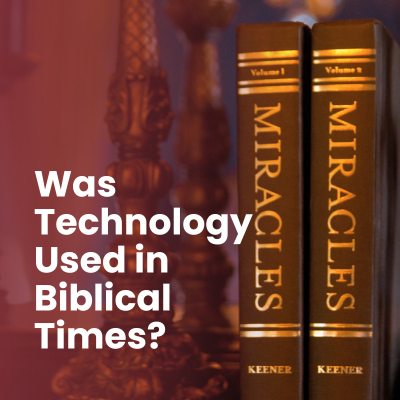


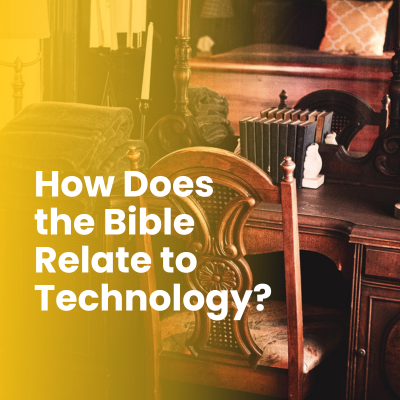

Leave a Reply